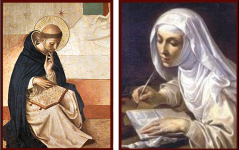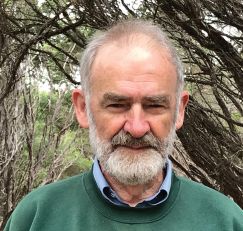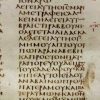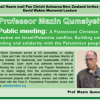Peter Murnane is a Dominican Friar who was in Auckland from ’91 to 2011, then in the Solomon Islands for four years. Back in Melbourne after some medical adventures, he has been writing this blog since mid-2016. His Easter blog post is shared below:
As we move through life, we often find that we have to change our minds about some important matters. This is an important part of growing up, of growing wiser as we learn from other people. I recently came across a good example of this.
We often read or hear in the news how bad people are. Talk-back radio gurus love to give us examples of this. The famous book Lord of the Flies tried to show us that children left to themselves on an island without adult control would begin to fight and destroy each other. Many people believe that our natural state is fighting each other, a state of continuous war. But the thoughtful book Human kind challenges this idea. It shows how good most people are.
It begins by showing that Lord of the Flies got it wrong, by telling the tru e story of six boys who actually were marooned on an uninhabited Pacific island for fifteen months. They did not destroy each other, but learned to live in peace together, growing food, overcoming their quarrels and caring for each other.
Many other true stories in this book Human kind show how it is in our nature to help and care for other people. Just look at how people help each other when struggling against bushfires or floods!
The book gives many examples of how journalists and the media often distort a story to make people seem cruel, inhuman, when they are mostly the opposite. The media bosses know that sensational stories sell better. If we think that most people are naturally bad, perhaps we need to change our minds.
Easter morning gives us the most powerful example of changing our minds. Mary of Magdala, Peter and the other friends of Jesus made an enormous discovery. Mary of Magdala loved Jesus deeply. Can we possibly feel her deep grief, as she watched Jesus die? Peter too loved him; he had tried to defend him with the sword and was rebuked. Later, in his weakness, he denied that he knew Jesus. What awful guilt and shame he must have felt.
Can we begin to imagine what a complete turnaround I was for both of them: when Mary found the tomb empty; and when Peter heard her confused message that ‘they’ had stolen Jesus’ body? Could it be that he might… somehow… be alive? Then – the story puts in its own terms – they saw him.
It may be hard for us, if we have been raised as Christians, to realise how extraordinary this news is, that Jesus, who was tortured to death, is alive again. Not just as a statement in the Creed, but an astonishing truth: that our death is not going to be the end! Those people whom we love, who have died, have not been destroyed but taken into the Light of God: the Christ, the Risen One, who is somehow present to the whole universe.
The more we think about it, and turn it over in our minds and hearts, in our daily prayer and meditation, it ‘blows our mind’; it really changes our life. We begin to see that all the little pains of our life – and the big ones – are trivial beside the gift of this wonderful Good News: that the universe is run by Infinite Love, which gives us life now and promises to increase and deepen that life… forever.
We see too that we can change our minds about ourselves: that we can become powerful helpers, working with the Risen Christ. How our prayer can make this little bit of our world a much more loving place, and we can even do our part to heal the bigger problems of the world.
The mystery of Jesus rising to life again is enormous, and glorious. Alleluia.
To read more from Peter Murnane go to his blog:








